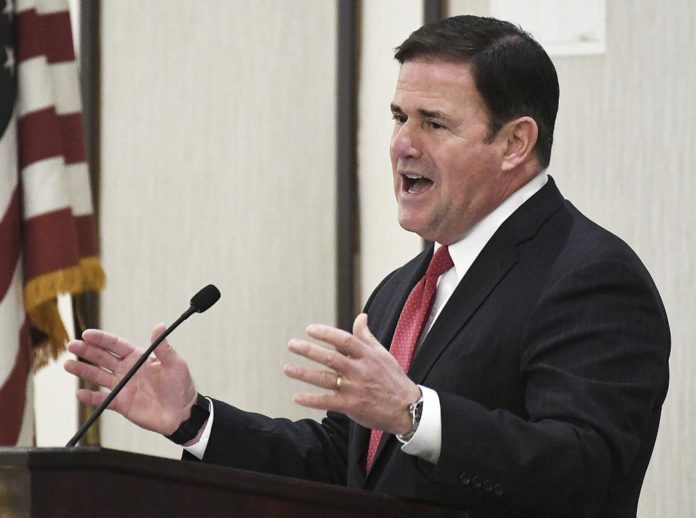
Gov. Doug Ducey on Monday signed legislation that prohibits government agencies from requiring COVID-19 vaccinations and bars schools from mandating masks for students under age 18 unless their parents approve.
The bills approved by the Republican governor are the latest measures backed only by GOP members of the Legislature responding to what they believe are overly-aggressive government actions during the coronavirus pandemic.
Ducey also signed bills declaring that religious services are essential even in an emergency, which allows clergy to make hospital visits if any visitation is allowed or if a person is near death. Ducey never limited religious services during early pandemic shutdowns. Many hospitals barred all visits to coronavirus patients.
The school mask ban replaces one that was included in last year’s state budget but thrown out by the courts. The state Supreme Court agreed with lower courts that the Republican-controlled Legislature violated the state constitution by including a host of policy provisions unrelated to the spending plan in the budget.
It forbids school districts or any other government entity from forcing minors to wear a face mask unless their parent or guardian gives their express permission.
The second bill prevents the state or any local government from requiring employees or anyone else to get a COVID-19 vaccination. The bill mirrors an executive order issued by Ducey last year.
The federal Centers for Disease Control and Prevention says mask-wearing during times of high community transmission of COVID-19 greatly limits its spread. But opponents say parents should have the last say as to whether their children should wear masks.
The introduction of vaccinations against COVID-19 is credited with limiting deaths and serious injuries, but mandate opponents say that personal choice should outweigh government vaccination mandates.
Ducey recommended mask-wearing and vaccinations but opposed government mandates.
The mask and vaccination bills were opposed by all Democrats in the Legislature. The measures on religious services drew broad bipartisan backing, while the hospital visit bill drew a smattering of Democratic support.
Republished with the permission of the Associated Press.














